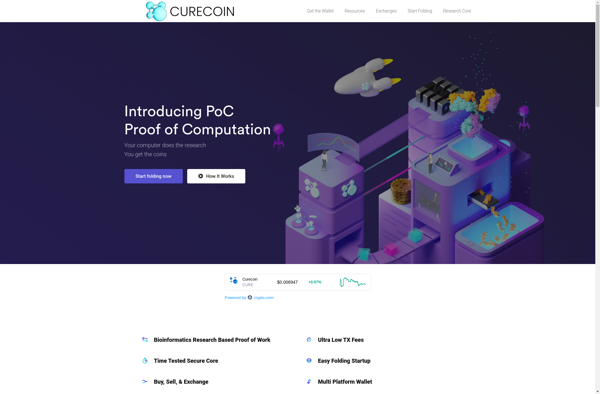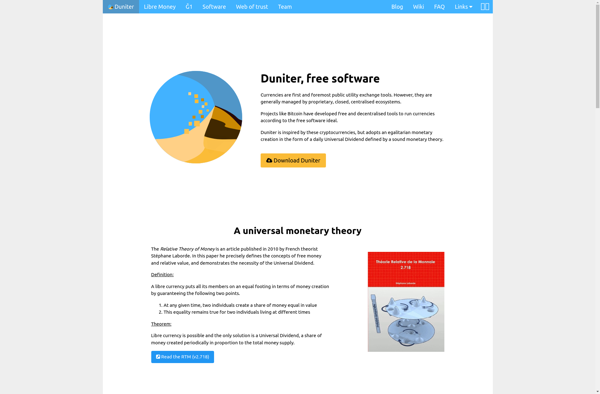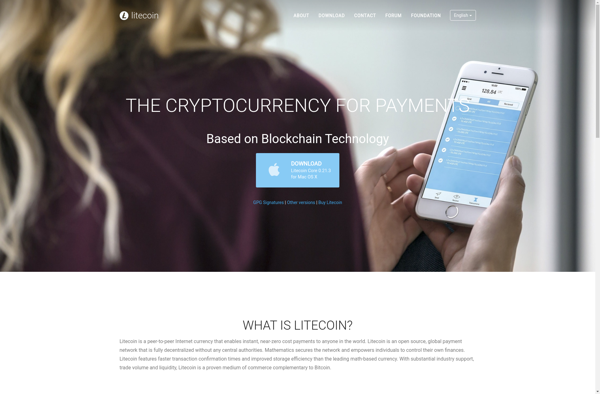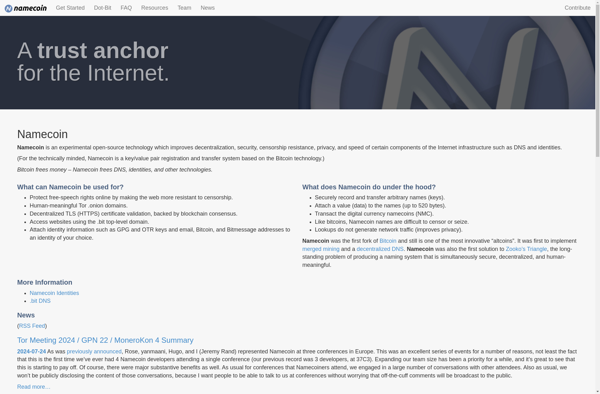CureCoin

CureCoin: Proof-of-Work Mining for Medical Research
A cryptocurrency utilizing proof-of-work mining to reward contributors in medical research projects such as Folding@Home, aiming to utilize blockchain technology for incentivizing medical advancements.
What is CureCoin?
CureCoin is a cryptocurrency launched in 2014 that utilizes a proof-of-work mining algorithm to reward participants who contribute spare computing power to distributed computing projects focused on medical research, especially Folding@Home. Folding@Home is a distributed computing network organized by Stanford University researchers that allows anyone to donate their unused computing resources to simulate protein folding, computational drug design, and other medical research.
By tying cryptocurrency rewards to providing computing power to these projects, CureCoin aims to advance and accelerate potentially groundbreaking medical research. Participants can install the Folding@Home software and CureCoin's own mining software to start earning CureCoins for every research unit completed, which requires providing verifiable computational work. The more computing power provided, the greater the mining rewards.
As a cryptocurrency, CureCoin allows medical researchers and participants to transact and transfer value worldwide with little barrier to entry, incentivizing broader participation. With a capped supply and distributed network, CureCoin could gain in value if adopted widely enough, further encouraging mining to support projects like Folding@Home. The dual incentives of accelerating medical research and earning a potentially valuable cryptocurrency set CureCoin apart from other crypto projects.
CureCoin Features
Features
- Proof-of-work mining algorithm
- Rewards participants for contributing computing power to medical research
- Uses blockchain technology
- Incentivizes advancing medical research
Pricing
- Free
- Open Source
Pros
Cons
Official Links
Reviews & Ratings
Login to ReviewThe Best CureCoin Alternatives
Top Bitcoin & Cryptocurrency and Medical Research Cryptocurrencies and other similar apps like CureCoin
Here are some alternatives to CureCoin:
Suggest an alternative ❐Monero

Duniter

Ripple - Crypto Solutions

Litecoin

Dogecoin

Cardano

Ethereum

NameCoin
